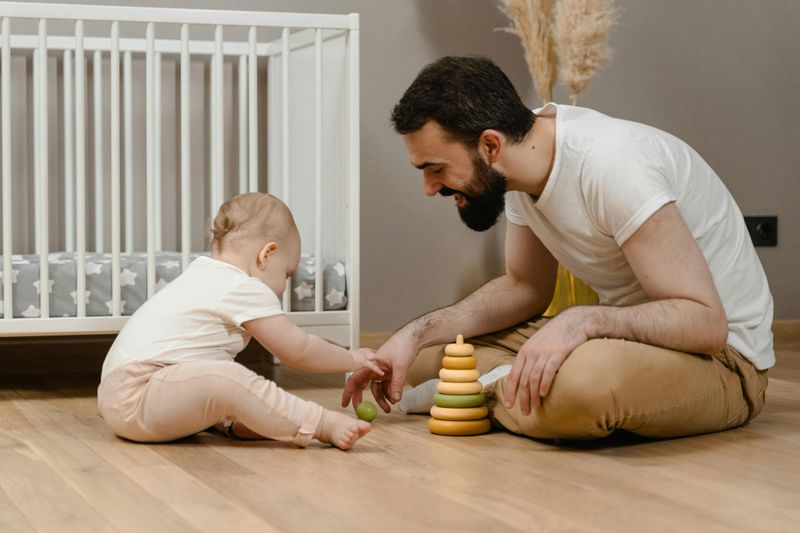1. Introduction

Having kids used to be a given step in life’s journey. Not anymore! Today’s millennials are rethinking the timing of parenthood in ways that surprise older generations. They’re making deliberate choices about when—or if—to start families, based on factors their parents might never have considered. Let’s explore the unexpected reasons behind this major shift in family planning.
2. Financial Reality Check

Remember when a single income could support a family of four? Millennials don’t. They’re facing a housing market where prices have skyrocketed while wages have barely budged.
Childcare costs have become particularly shocking—often exceeding college tuition in many states! Add student loan debt that previous generations didn’t shoulder, and the math becomes sobering.
The average cost of raising a child to age 18 now exceeds $230,000, not including college. For millennials still trying to achieve financial stability, these numbers aren’t just statistics—they’re roadblocks to the families they hope to build someday.
3. Healing Personal Wounds First

Millennials grew up watching therapy transform from taboo to essential self-care. Many recognize patterns of trauma, anxiety, or unhealthy coping mechanisms passed down through generations.
Rather than automatically continuing the family line, they’re pressing pause to address their own emotional health. They’re asking tough questions: “What baggage am I carrying? How might that affect my parenting?”
This introspective generation wants to break cycles of dysfunction before creating new life. They’re seeking therapy, practicing mindfulness, and doing the inner work their parents often couldn’t—creating healthier foundations for future families.
4. Creating Their Own Definition of Success

“Get married, buy a house, have kids.” This formula defined success for generations. Millennials are tearing up that script and writing their own.
Many prioritize experiences over traditional milestones. They’re building businesses, pursuing creative passions, advancing specialized careers, or exploring the world. Parenthood hasn’t disappeared from their goals—it’s just not automatically at the top of the list.
For this generation, success might mean becoming financially independent, finding fulfilling work, making a difference in their communities, or achieving personal growth. They’re measuring life satisfaction beyond the traditional markers their parents used.
5. Valuing Their Freedom Years

Midnight road trips. Spontaneous weekend getaways. Career changes at 35. These freedoms disappear overnight with a newborn’s arrival—a reality millennials fully understand.
They’ve watched friends transform from adventurous spirits to homebound parents. Social media has made the contrast between parent and non-parent lifestyles more visible than ever before.
Rather than rushing into parenthood, many millennials are savoring their independence. They’re building memories, exploring interests, and enjoying life phases that become nearly impossible with children. It’s not selfishness—it’s acknowledging that parenthood permanently changes everything, and some experiences are best had before that transition.
6. Environmental Concerns Weighing Heavy

Climate reports have been the backdrop to millennials’ entire adult lives. They’ve grown up watching increasingly severe storms, wildfires, and rising temperatures—not as abstract concepts, but as their lived reality.
Many wrestle with profound questions: What kind of world will my child inherit? Is bringing new life into an uncertain environmental future fair or responsible?
This isn’t just passing anxiety. Studies show climate concerns genuinely influence family planning decisions for this generation. Some are choosing to have fewer children or delay parenthood until they see more environmental progress, while others are considering adoption as an alternative path to family.
7. Seeking Equal Parenting Partnerships

Gone are the days when women automatically shouldered most childcare responsibilities. Millennials watched their mothers juggle everything while fathers remained “helpers” rather than equal partners.
Today’s potential parents want something different. They’re waiting to find partners who truly share their parenting values and will split the mental load, not just diaper duty.
Women, especially, are holding out for relationships where career sacrifices aren’t automatically expected of them. They’ve seen the “mommy penalty” in action and want partners who understand that parenting is a two-person job requiring equal commitment, not just occasional assistance.
8. Breaking the Rushed Timeline

“I was married at 22 and had three kids by 30!” Many millennials grew up hearing this from parents who followed society’s expected timeline. They also witnessed the struggles that often accompanied those rushed decisions.
Financial stress, identity crises, and relationship strain were common in households where parents hadn’t fully developed themselves before taking on family responsibilities. Millennials are determined to avoid these pitfalls.
With longer lifespans and better health in later decades, they see no rush. Many are embracing the idea that parenting in their 30s or even 40s might allow them to bring more wisdom, patience, and resources to the challenging job of raising humans.

Comments
Loading…